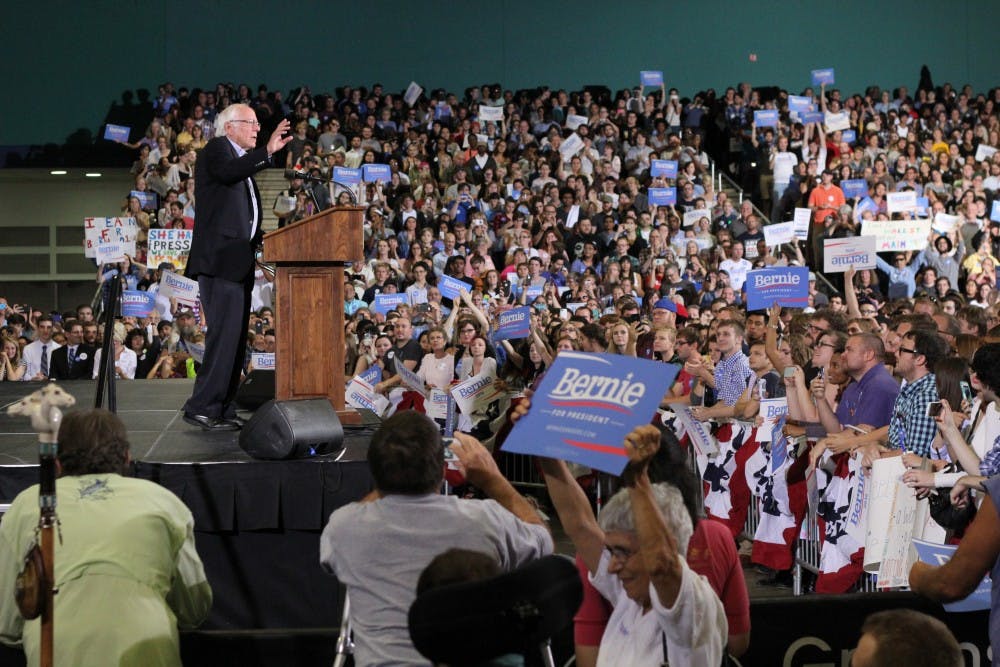Bernie Sanders (I-VT) endorsed Hillary Clinton for the Democratic Presidential nomination July 12 during a campaign stop in Portsmouth, N.H, seemingly ending a long stretch of primary campaigning that positioned the two as bitter rivals. This comes a week after President Barack Obama endorsed Clinton publicly on the campaign trail.
"I have come here to make it as clear as possible why I am endorsing Hillary Clinton and why she must become our next president," Sanders said. "Secretary Clinton has won the Democratic nomination and I congratulate her for that."
Sanders and the Clinton were deadlocked in a series of policy disagreements for the past two years in the lead up to primary elections across the country. The former Secretary of State has been the Democratic Party’s presumptive nominee since early June when she collected the mandated 2383 delegates needed to secure the primary victory. Clinton won the North Carolina Democratic primary, edging the Vermont Senator in votes by 13.8%.
The message at the endorsement was overwhelmingly one of togetherness, as evidenced in tweets from both Clinton’s and Sanders’ campaigns.
Together, let’s go win this election. pic.twitter.com/lRSwpk9y4b
— Hillary Clinton (@HillaryClinton) July 12, 2016
Our job now is to see our progressive platform implemented by a Democratic Senate, a Democratic House and a Hillary Clinton presidency.
— Bernie Sanders (@BernieSanders) July 12, 2016
Though the two preached unity in their Tuesday appearance, uncertainty still remains about how voters will react to the new relationship. Sanders won the New Hampshire primary by 22.4% and the former First Lady has struggled connecting with younger voters, something that Sanders has excelled at. Clinton’s campaign hopes to gain the backing of voters in those states which will likely vote Democratic in the presidential election, but favored Sanders in the primaries.
Bernie Sanders formally endorses Hillary Clinton at their joint event in Portsmouth, N.H. https://t.co/pqPZfgKl3N https://t.co/dls8motieV
— CNN Politics (@CNNPolitics) July 12, 2016
If the mix of cheers and jeers from the crowd in Portsmouth was any indication, those who initially supported Sanders will be somewhat divided in November’s general election. Statistics imply that the majority of Sanders supporters will vote for the presumptive Democratic nominee.
A study from the Pew Research Center found that 85% of those who had supported Sanders in primary elections intend to vote for Clinton in November, with 9% intending to vote for Trump. The remaining 6% responded saying they would vote for a third candidate.
To all the Bernie voters who want to stop bad trade deals & global special interests, we welcome you with open arms. People first.
— Donald J. Trump (@realDonaldTrump) July 12, 2016
To all the Bernie voters who want to stop bad trade deals & global special interests, we welcome you with open arms. People first.
— Donald J. Trump (@realDonaldTrump) July 12, 2016
In the most recent Elon Poll, North Carolina voters responded that they would favor Clinton (45%) over Trump (39%) in a general election.


